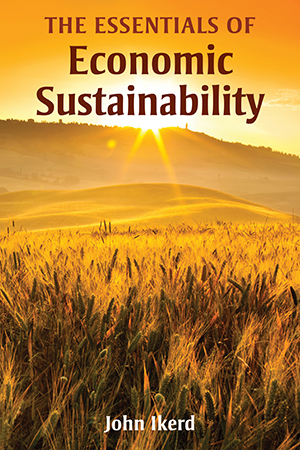
- 2012/150 pages
- A Kumarian Press Book
The Essentials of Economic Sustainability
Hardcover: $55.00
ISBN: 978-1-56549-515-9
Paperback: $26.50
ISBN: 978-1-56549-516-6
Ebook: $26.50
ISBN: 978-1-56549-518-0
Though much has been written about the negative impacts of economic development on natural ecosystems and civil societies, few viable alternatives to the prevailing economic paradigms have been suggested. John Ikerd moves the debate forward.
Ikerd outlines the basic principles and concepts essential to economic sustainability. Some of these concepts are capitalist, some are socialist, and others are general principles validated by philosophy or common sense. Putting them together, he proposes something fundamentally different: instead of apocalyptic pronouncements, he offers possibilities. Readers of any political or ideological persuasion will find his brief book engaging, informative, optimistic, and refreshing.
Ikerd outlines the basic principles and concepts essential to economic sustainability. Some of these concepts are capitalist, some are socialist, and others are general principles validated by philosophy or common sense. Putting them together, he proposes something fundamentally different: instead of apocalyptic pronouncements, he offers possibilities. Readers of any political or ideological persuasion will find his brief book engaging, informative, optimistic, and refreshing.







